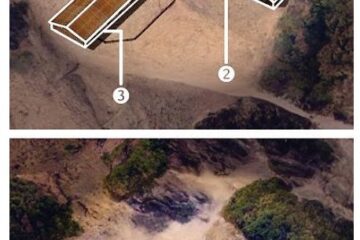Republicans back Homeland Security powers in national parks
The Department of Homeland Security could gain more power over more than 50 national parks within 100 miles of the borders with Mexico and Canada under legislation in the House.
Source of this article: The Seattle Times, April 19, 2012
LOS ANGELES — House Republicans are backing legislation in Congress to give the Department of Homeland Security control of more than 50 national parks and forests within 100 miles of the U.S. borders, including in Washington state.
The legislation involves a sweep of land along the frontier with Canada and Mexico, but exempts state land, private property and federal holdings used for mining, livestock grazing and timber harvesting. The new authority would carve through 54 national parks. Among the parks that would be affected are North Cascades National Park and Olympic National Park in Washington; Glacier National Park in Montana; Saguaro National Park in Arizona; and Acadia National Park in Maine. National forests along the border, and areas protected as wilderness, also could be affected.
The National Security and Federal Lands Protection Act, sponsored by conservative Rep. Rob Bishop, R-Utah, would give Border Patrol and Customs agents and other federal officials the right to suspend any federal law, including environmental laws, on land managed by the departments of Interior and Agriculture. It would give Homeland Security the right to conduct any activity or construct any facility required to secure the border.
Although stalled in the House and with little hope in the Democratic-controlled Senate, the legislation demonstrates the intentions of Republicans as the November elections approach.
Park advocates say the legislation overreaches, calling it unnecessary because Homeland Security already has the power to suspend laws that inhibit its operations. They say the bill will override 36 federal laws that protect cultural and historic sites, wildlife and valued landscapes.
“As American families head to their national parks, we want to sound the alarm about this shocking legislation,” said Joan Anzelmo, a board member for the Coalition of National Park Service Retirees. “We think the legislative proposal is a direct assault on our national parks. It would affect every aspect of the day-to-day park operations. It’s unprecedented in the history of the agency.”
Some in Congress have argued that environmental laws such as the Wilderness Act, which prohibits motorized access to protected land, impede the ability of border agents to operate freely. Further, proponents say, the few federal departments and multiple jurisdictions along the border make coordination difficult.
But the Border Patrol told Congress last year that it had forged agreements with the National Park Service and other land managers and that the agencies have been working cooperatively. Homeland Security Secretary Janet Napolitano testified before Congress last month, saying the bill “is unnecessary, and it’s bad policy.”


